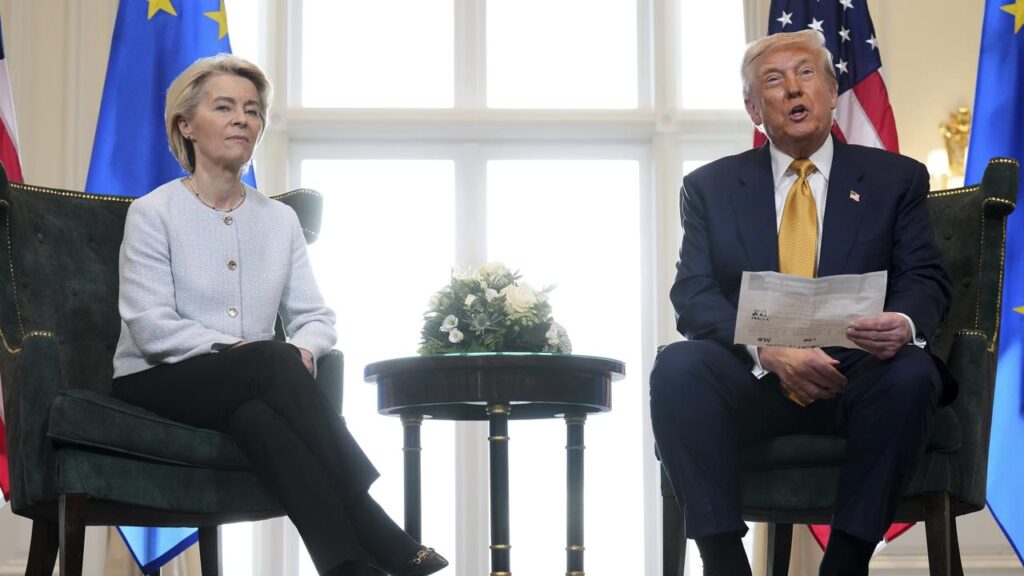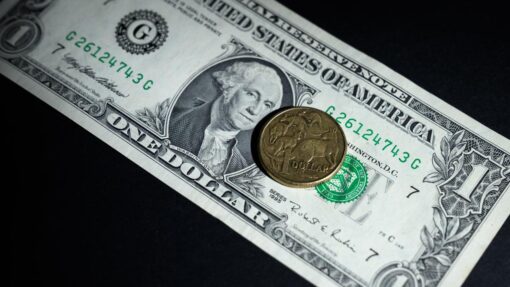Europe reacts with relief and concern to US trade deal
Philip Blenkinsop and Sudip Kar-Gupta |

European governments and companies are reacting with both relief and concern to the framework trade deal struck with US President Donald Trump, acknowledging what is seen as an unbalanced deal but one that avoids a deeper trade war.
The agreement, announced on Sunday between two economies that account for almost a third of global trade, will see the US impose a 15 per cent import tariff on most EU goods – half the threatened rate but much more than what Europeans hoped for.
Many of the specifics of the deal were not immediately known, however.
“As we await full details of the new EU–US trade agreement, one thing is clear: this is a moment of relief but not of celebration,” Belgian Prime Minister Bart De Wever wrote on X.
“Tariffs will increase in several areas and some key questions remain unresolved.”
Trump said the deal, including an investment pledge topping the $US550 billion ($A843 billion) deal signed with Japan last week, would expand ties between the trans-Atlantic powers after years of what he called unfair treatment of US exporters.
It will bring clarity for European makers of cars, planes and chemicals.
But the EU had initially hoped for a zero-for-zero tariff deal. And the 15 per cent baseline tariff, while an improvement on the threatened rate of 30 per cent, compares with an average US import tariff rate of about 2.5 per cent in 2024 before Trump’s return to the White House.
European Commission chief Von der Leyen, describing Trump as a tough negotiator, told reporters on Sunday that it was “the best we could get”.

European stocks opened up on Monday, with the STOXX 600 at a four-month high and all other major bourses also in the green, with tech and healthcare stocks leading the way.
German Chancellor Friedrich Merz welcomed the deal, saying it averted a trade conflict that would have hit Germany’s export-driven economy and its large auto sector hard.
French government ministers said on Monday that the deal had some merits – such as exemptions they hoped to see for some key French business sectors such as spirits – but was nevertheless not balanced.
Industry minister Marc Ferracci stressed more talks – potentially lasting weeks or months – would be needed before the deal could be formally concluded.
“This is not the end of the story,” he told RTL radio.
European companies were left wondering whether to cheer or lament the accord.

“Those who expect a hurricane are grateful for a storm,” said Wolfgang Grosse Entrup, head of the German Chemical Industry Association VCI.
“Further escalation has been avoided. Nevertheless, the price is high for both sides. European exports are losing competitiveness. US customers are paying the tariffs,” he said.
Among the many questions that remain to be answered, however, is how the EU’s promise to invest hundreds of billions of dollars in the US and steeply increase energy purchases can be turned into reality.
It was not immediately clear if specific pledges of increased investments were made or whether the details still must be hammered out.
And while the EU pledged to make $US750 billion in strategic purchases over the next three years, including oil, liquefied natural gas and nuclear fuel, the US will struggle to produce enough to meet that demand.
While US LNG production capacity is due to almost double during the next four years it will still not be enough to ramp up supplies to Europe, and oil production is expected to be lower than previously forecast in 2025.
Reuters


